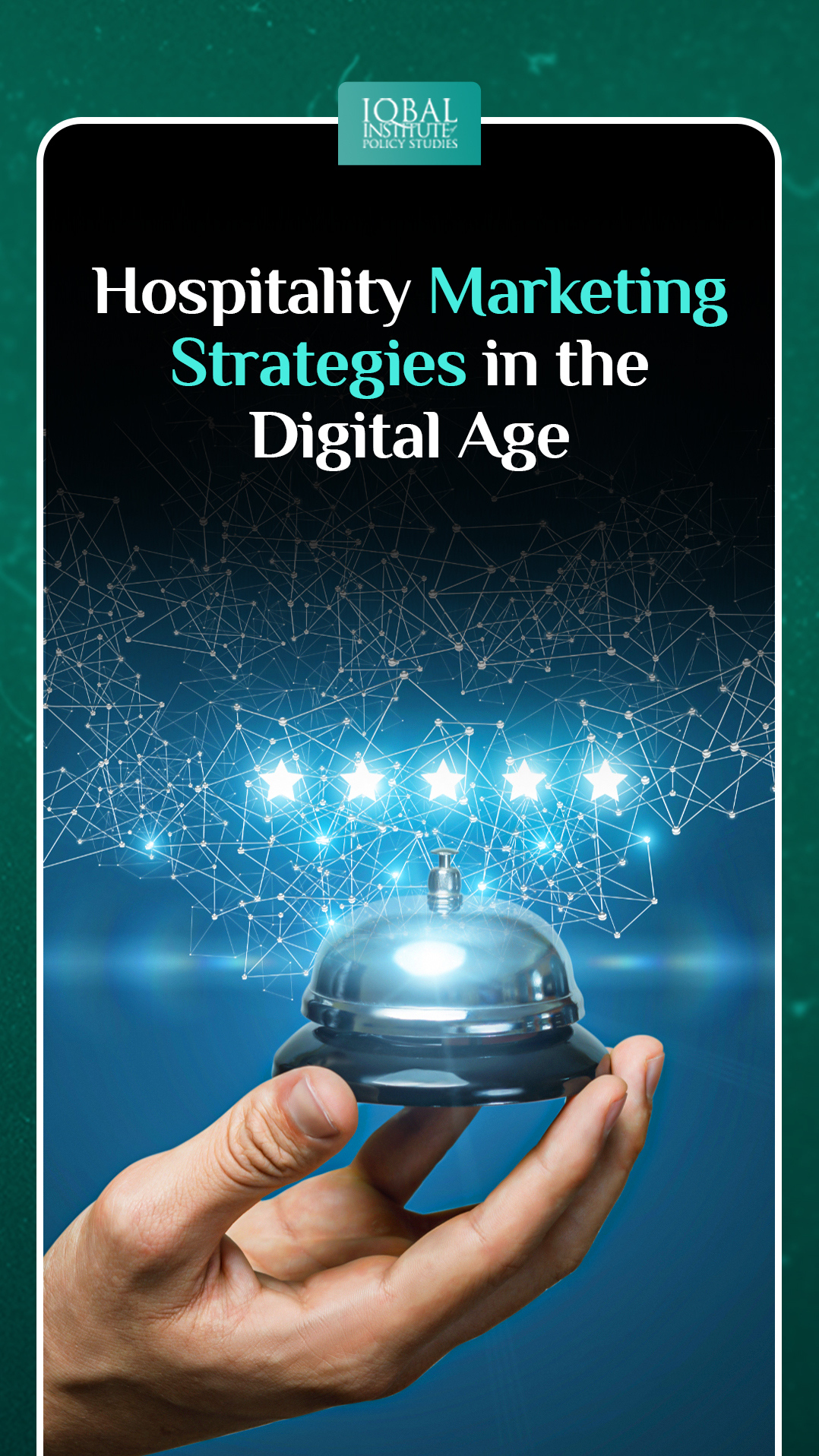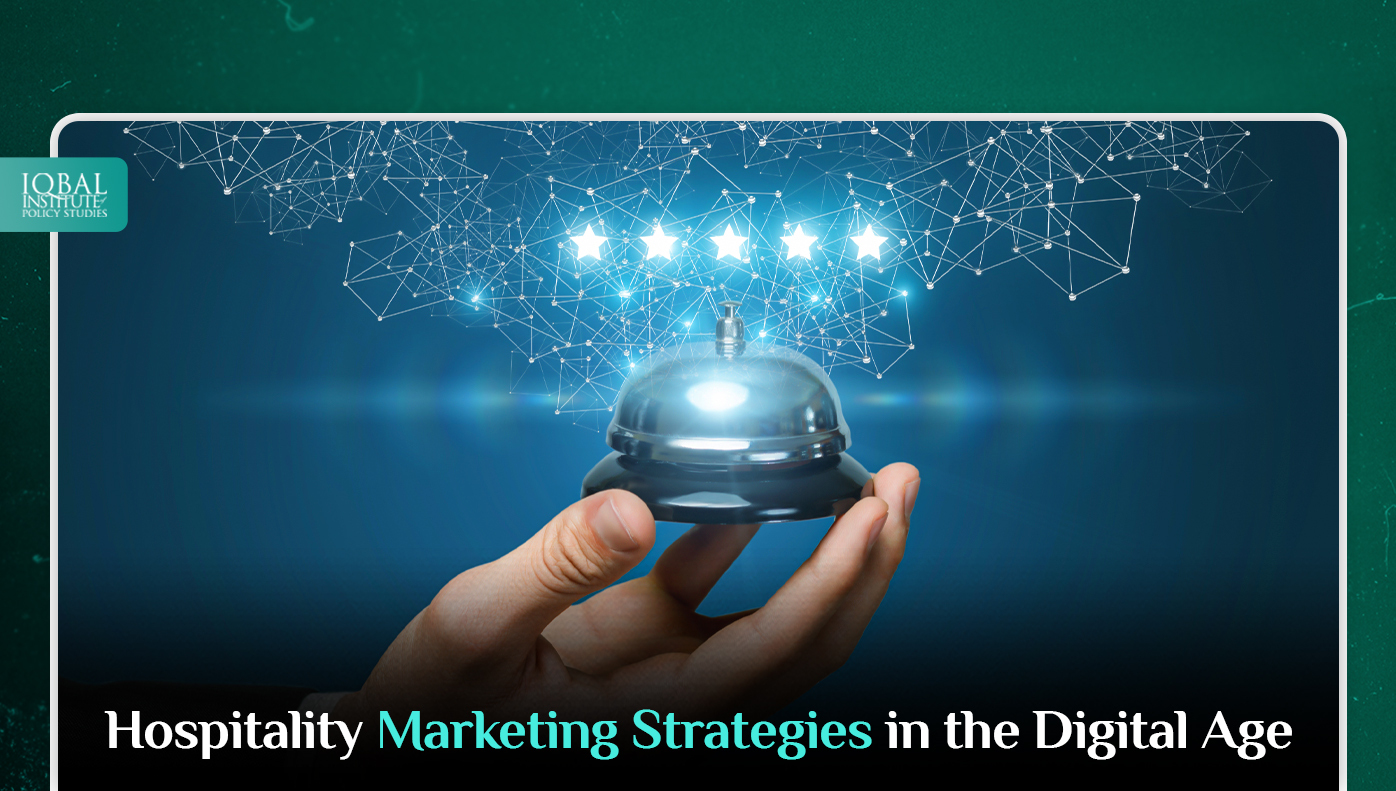A robust marketing strategy is the cornerstone of every successful business, and the hospitality industry is no different. In the changing landscape of hospitality, where experiences are at the heart of everything, marketing plays a pivotal role. Hospitality marketing is more than just promoting hotels, restaurants, and travel services; it is about creating, nurturing, and sharing unforgettable guest experiences. It aids businesses in the travel, restaurant, and consumer services sectors by raising awareness and generating interest in their products and services among consumers. Moreover, the hospitality industry is full of fierce competition and customer expectations continue to soar; hence, to thrive in this dynamic landscape, businesses must adapt their marketing strategies to stay relevant and competitive. They should prioritize a strong online presence with engaging content. Furthermore, utilizing emerging technologies and demonstrating commitment to sustainability, ethics, and data security enhances trust. Consistently refining marketing approaches enables hospitality companies not just to survive but progress as well.
The Digital Landscape
The digital age has revolutionized the way people plan and book their travel experiences. Travelers now turn to the internet, social media, and mobile apps to research destinations, read reviews, and make reservations. For instance, approximately 60% of hotel bookings are conducted online, with social media serving as a significant channel for brand discovery. Notably, 55% of consumers follow hotels on Facebook to gather more information about their properties (amra and elma, 2023). As a result, hospitality businesses must establish a strong online presence to capture the attention of their target audience.
Mobile Optimization
With the majority of travelers using smartphones and tablets to browse and book accommodations and dining options, mobile optimization is crucial. For example, around 45% of travelers prefer mobile apps for booking accommodations and tours on their mobile devices. Additionally, nearly 85% of travelers use their mobile devices to book various activities (Elphick, 2023). Thus, responsive websites and mobile apps should offer seamless navigation and booking processes.
Search Engine Optimization (SEO)
As per Skift, a prominent travel data and news portal, organic traffic accounts for the largest share of revenue generation, making up 46% for travel and hospitality brands (Duncan, 2021). To increase visibility in search engine results, businesses need to invest in SEO. This involves optimizing website content, meta descriptions, and keywords to rank higher in search engine rankings.
Social Media Engagement
Social media platforms like Facebook, Instagram, and Twitter play a vital role in hospitality marketing. Regularly posting high-quality content, engaging with customers, and utilizing paid advertising can help businesses build a strong online presence.
Online Reviews and Reputation Management
Positive online reviews can significantly influence a traveler’s decision. Encourage guests to leave reviews and actively manage your online reputation by promptly addressing negative feedback.
Personalization and Customer Experience
Customers expect a personalized and seamless experience throughout their journey. Hospitality businesses can leverage technology to enhance the guest experience by;
Data-driven Personalization
Analyze customer data to offer tailored recommendations and promotions. For example, a hotel can send personalized offers based on a guest’s previous stays or preferences.
Chatbots and AI-powered Concierge Services
Chatbots and AI-powered virtual concierges can provide instant assistance and recommendations to guests, improving their overall experience.
Augmented and Virtual Reality (AR/VR)
A recent research study predicts that the travel and hospitality AI market will exceed $1.2 billion by 2026, with an expected compound annual growth rate (CAGR) of over 9.7% from 2021 to 2026 (Sanders, 2023). This signifies a significant transformation in the hospitality industry driven by AI adoption, aimed at streamlining operations and delivering exceptional customer experiences, in line with the expectations set by other industries. AR and VR technologies can be used to create immersive experiences, allowing potential guests to explore hotel rooms, restaurant interiors, and even destinations before making a reservation.
Sustainability and Ethical Marketing
Sustainability and ethical considerations are increasingly important to today’s travelers.In a 2021 study, 81% of surveyed travelers expressed their intention to opt for sustainable accommodation choices in the upcoming year. Also, in 2018, Hilton conducted a survey revealing that one-third of guests proactively research a hotel’s environmental and social practices before making a booking, with 44% of guests under the age of 25 being particularly inclined to do so (Hollander, 2023). Hospitality businesses can leverage their commitment to sustainable practices in their marketing strategies.
Green Initiatives
Highlight eco-friendly practices such as energy-saving measures, waste reduction, and sustainable sourcing of materials and food products.
Community Engagement
Showcase involvement in local communities and support for social causes, as travelers appreciate businesses that contribute positively to the areas they visit.
Transparency
Be transparent about sustainability efforts and any certifications you hold, such as LEED certification for green buildings or
Data Security and Trust
Reports indicate that over 60% of all cyberattacks are concentrated within just five industries, and the travel and hospitality sector is one of these, bearing the brunt of 9% of these attacks (Olczyk, 2022). Hence, in an era of heightened data privacy concerns, gaining and maintaining trust is paramount. Here’s how you can reassure your guests:
Data Security
Invest in robust data security measures to protect guest information. Ensure compliance with data protection regulations to build trust with the audience.
Transparent Privacy Policies
Clearly communicate data collection and usage practices in the privacy policy. Give guests control over their data and obtain explicit consent for marketing communications.
Leveraging Emerging Technologies
A substantial 78% of hotel businesses have intentions to boost their investments in hotel technology to enhance productivity (Acropolium, 2023). Therefore, to stay ahead in the digital age, consider harnessing emerging technologies:
Blockchain
Explore the use of blockchain for secure, transparent transactions and loyalty programs.
Artificial Intelligence
Implement AI-driven tools for predictive analytics, pricing optimization, and chatbots.
Voice Search
Optimize your content for voice search as more travelers use voice-activated devices to find accommodations and restaurants.
Conclusion
The digital age has reshaped hospitality marketing, presenting both challenges and opportunities. Adapting to this evolving landscape requires a strategic approach that prioritizes mobile optimization, personalization, sustainability, data security, and emerging technologies. By mastering these elements, the hospitality business can thrive and deliver exceptional experiences to travelers. Embrace the future, and your brand will flourish in this dynamic environment.
References
Acropolium. (2023, August 22). Top Hospitality Technology Trends in 2023. Acropolium. Retrieved September 11, 2023, from https://acropolium.com/blog/top-hospitality-technology-trends/
amra and elma. (2023, June 2). HOTEL MARKETING STATISTICS IN 2023 | Amra And Elma LLC. Amra & Elma. Retrieved September 11, 2023, from https://www.amraandelma.com/hotel-marketing-statistics/
Duncan, D. (2021, January 11). Overcome the Challenges of SEO for Travel Brands. seoClarity. Retrieved September 11, 2023, from https://www.seoclarity.net/blog/travel-seo-challenges
Elphick, D. (2023, May 17). Surprising Statistics Around Mobile Bookings for Small Hotels [Infographic]. Little Hotelier. Retrieved September 11, 2023, from https://www.littlehotelier.com/blog/running-your-property/surprising-statistics-around-mobile-bookings-small-hotels/
Hollander, J. (2023, February 16). Hotel Sustainability: 27 Statistics Illustrating the Growth of ESG in the Hotel Industry. Hotel Tech Report. Retrieved September 11, 2023, from https://hoteltechreport.com/news/hotel-sustainability-statistics
Olczyk, G. (2022, August 2). Cyber Crime & Hospitality: The Facts – Reliable Networks. Reliable Networks. Retrieved September 11, 2023, from https://reliablenetworks.co.uk/cyber-crime-hospitality-the-facts%EF%BF%BC/
Sanders, A. (2023, June 22). AI in Hospitality: More Than a Passing Trend. DataArt. Retrieved September 11, 2023, from https://www.dataart.com/blog/ai-in-hospitality-more-than-a-passing-trend
This article is written by Haneen Gul. Haneen is a research analyst at the Iqbal Institute of Policy Studies (IIPS).



Leave a Reply